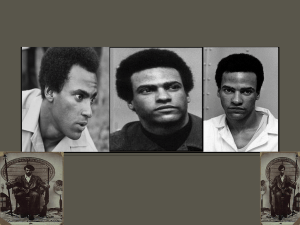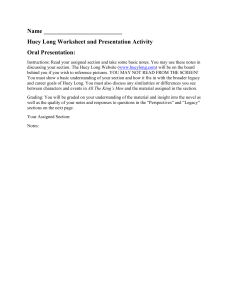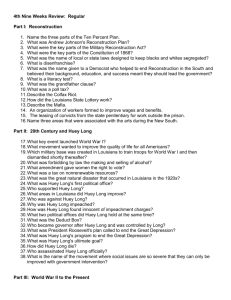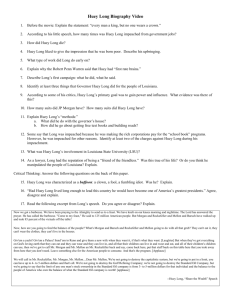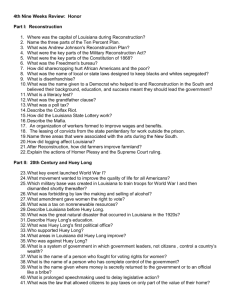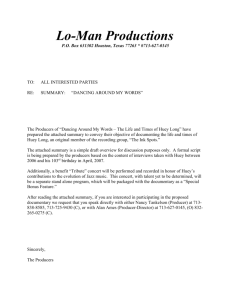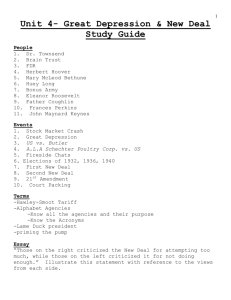Huey P. Long--Fields_Ephraim
advertisement
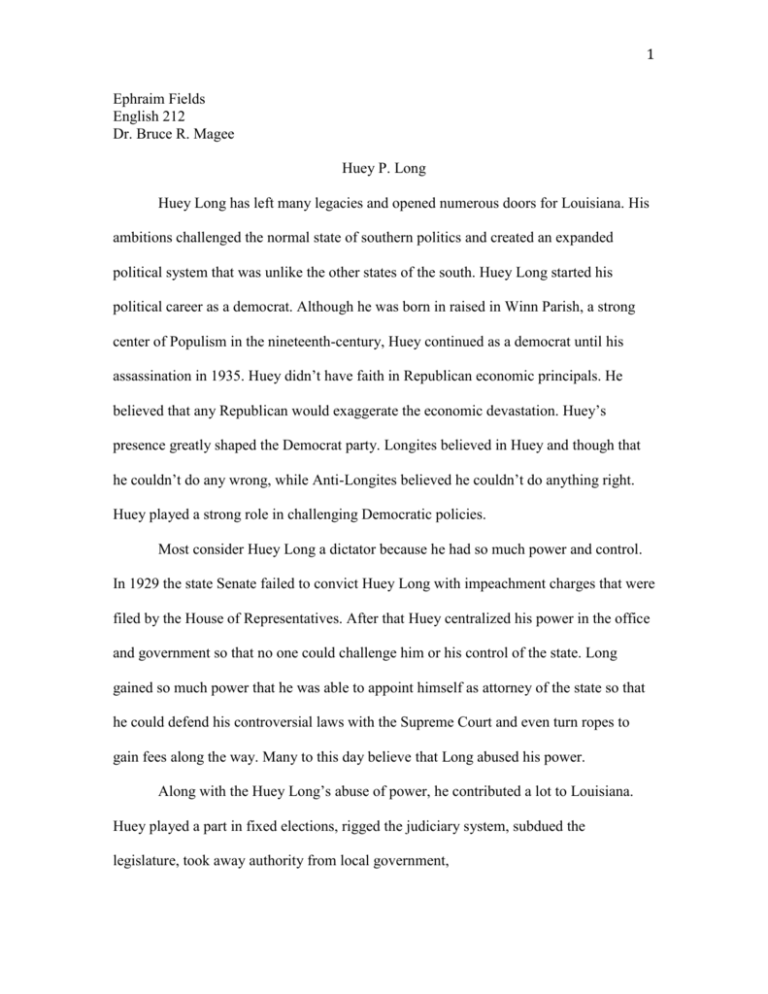
1 Ephraim Fields English 212 Dr. Bruce R. Magee Huey P. Long Huey Long has left many legacies and opened numerous doors for Louisiana. His ambitions challenged the normal state of southern politics and created an expanded political system that was unlike the other states of the south. Huey Long started his political career as a democrat. Although he was born in raised in Winn Parish, a strong center of Populism in the nineteenth-century, Huey continued as a democrat until his assassination in 1935. Huey didn’t have faith in Republican economic principals. He believed that any Republican would exaggerate the economic devastation. Huey’s presence greatly shaped the Democrat party. Longites believed in Huey and though that he couldn’t do any wrong, while Anti-Longites believed he couldn’t do anything right. Huey played a strong role in challenging Democratic policies. Most consider Huey Long a dictator because he had so much power and control. In 1929 the state Senate failed to convict Huey Long with impeachment charges that were filed by the House of Representatives. After that Huey centralized his power in the office and government so that no one could challenge him or his control of the state. Long gained so much power that he was able to appoint himself as attorney of the state so that he could defend his controversial laws with the Supreme Court and even turn ropes to gain fees along the way. Many to this day believe that Long abused his power. Along with the Huey Long’s abuse of power, he contributed a lot to Louisiana. Huey played a part in fixed elections, rigged the judiciary system, subdued the legislature, took away authority from local government, 2 had his political opponents kidnapped, and used his power to gain his own personal desires. But Huey Long also used his power to take on a positive and effective agenda. Huey provided the state with textbooks for school children, he built roads, public facilities, bridges, and improved healthcare and the availability to everyone. Huey was focused on his visions and didn’t stray from them. He had reached a point of power where if his goals couldn’t be achieved within the limits of laws he would just have new legislature passed that would support his vision. Huey Long believed heavily in taxes. During his inaugural address he explained how the tax revenue should be used. Huey had a way of convincing the people and manipulating them with his speeches. In his speech Huey stated “nothing is further from right than to extort money through taxation and then to use these funds for purposes and causes for public interest”. Huey’s tax funded programs of enhanced state services made government a big part of the ordinary’s person’s life. Huey made politics relevant to the common people in Louisiana. He convinced the citizens that the power of the state government has been used to benefit the wealthy for far too long. Huey Long made citizens believe that the government was their friend, and that he was their protector. “Guardian of the well being”. I found this article to be very valid and straight forth. The article was all factual. Although the author did not insert his opinions into his article, I like how he inserts works of others that explain their opinions and views. This sometimes got out of hand as the article rambles on about off topic subjects that only similarly relate to Huey Long. On the other hand, this extra information in some cases helps to better understand the article and also validates the point made by the author. The article was very helpful and informative 3 about Huey Long. The way it is set up draws you into each topic, such as the topic of power where it gave you very detailed cons then shows you the pros that outweigh the cons. I feel that the article did a good job in giving a personal side of Huey Long and how citizens viewed him rather than just giving facts. This made the article interesting to read and less of a dread. 4 Sanson, Jerry P. “"What He Did and What He Promised to Do... ": Huey Long and the Horizons of Louisiana Politics.” Louisiana History: The Journal of the Louisiana Historical Association , Vol. 47, No. 3 (Summer, 2006), pp. 261-276
